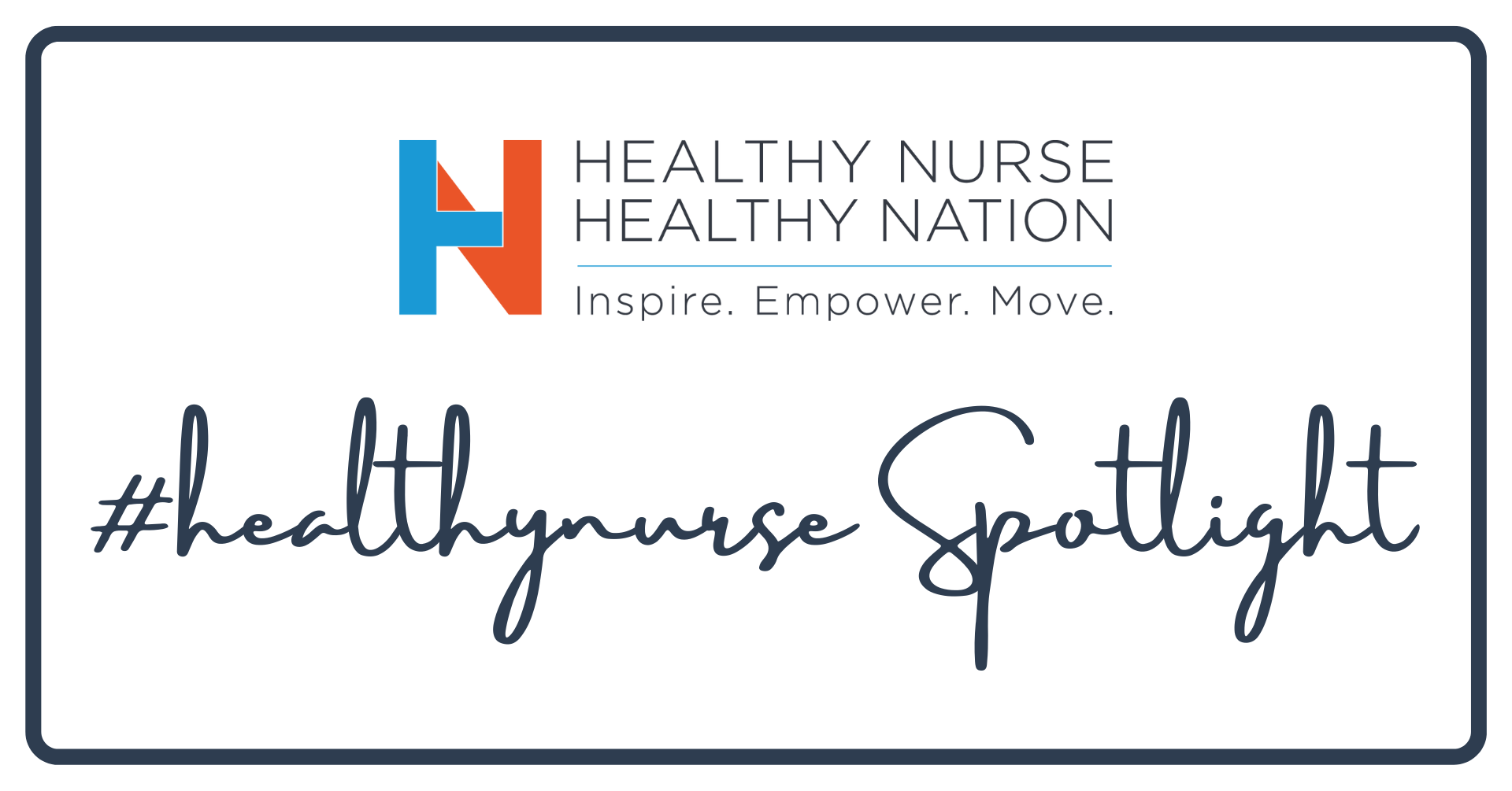Healthy Nurse, Healthy Nation™ - #healthynurse Spotlight Series - Lisa Soucy-Dion, MSN, RN
Published
Nurse promotes the power of peer support

Nurses are committed to caring for others. #Healthynurse Lisa Soucy-Dion, MSN, RN, like many nurses, thought that her commitment and passion were enough to carry her through her career.
But after 37 years working in the NICU (neonatal intensive care unit), Lisa proudly and passionately admits that peer support is also a big part of her success as a nurse.
“Peer support is not therapy or friendship,” Lisa says. “It's one peer allowing another peer to recognize that they are struggling, realize they're not alone, and know that their reactions are normal.”
This kind of validation and connection has gotten Lisa through some challenging times. And now she’s paying it forward.
Leaning on Peer Support
Lisa didn’t always appreciate the value of leaning on her peers. But in 2014, when she received a cancer diagnosis, Lisa found herself craving the help of someone who’d gone through what she was experiencing.
“My friends, coworkers, and family were super supportive,” Lisa says. “But the people I gravitated toward and wanted to talk to were other people who had cancer. They were the ones who could really understand and make me feel better.”
Lisa received cancer care farther from home and didn’t participate in peer support at that hospital because of the distance. But her desire to connect with people who understood how she felt pushed her to seek it out on her own. She connected with family, friends, and friends-of-friends who had cancer, slowly growing her cancer support circle.
“Peer support is often just about validating your feelings and realizing that you aren’t going crazy,” Lisa says. “But people need that validation in all areas of life. Nurses are no exception.”
Lisa started noticing the role of this kind of support in the NICU where she worked. She and her colleagues relied heavily on one another to deal with the death of patients or stressful situations in the NICU.
When COVID hit, Lisa — like many nurses — needed the support of her peers to make the situation bearable. “Other health care workers understood,” Lisa said. “I had to live away from my family during that difficult time. It wasn’t easy.”
Building Large-Scale Peer Support for Health Care Workers
Amid the chaos of COVID, Lisa got involved in a bigger endeavor centered around peer support. A physician she’d met during her cancer treatment told her about a new peer support platform that was still in the planning phase. The vision was a platform connecting health care workers to give and receive anonymous peer support. They were hoping Lisa would participate in their beta testing.
Lisa immediately saw the potential. “So many hospitals develop peer support programs,” she says. “But the reality is, when something happens, the next patient is rolling in, and there’s not always time to gather your thoughts and seek out that network.”
Lisa now serves as an advisory board member for the platform. If health care systems are interested in this type of support, she recommends finding one that is:
- Adaptable: Users can seek support using text, taped messages, or live calls.
- Confidential: Health care professionals can give and receive peer support anonymously.
- Readily available: Support from peers is available anytime and allows nurses to digest their day before reaching out for support
“Having different avenues for people to access support makes it easy to connect and say, ‘I just had this terrible day. Has anyone else gone through this?’” Lisa says. “And nothing feels better than someone else answering, ‘You know, I just went through that last week.”
Viewing Peer Support as Self-Care
Self-care is any action that improves how you feel in the moment and boosts your wellness over time. Peer support fits that description, says Lisa. Leaning on the support of your peers can provide:
- Insight into your professional strengths and weaknesses.
- Relief that your experiences are typical and challenging for others, too.
- Sense of control over work-related situations and how they affect you.
- Trust in yourself and your peers.
However, Lisa believes providing peer support can be just as valuable as receiving it. “There’s a lot of research about the benefits of self-care,” she says. “But ‘other’ care nourishes the self too. Nurses and health care workers spend their whole lives helping others, but helping your peers this way feels different from nursing or medical care.”
Offering support to a peer can provide you with a sense of:
- Confidence in how you handle work-related challenges.
- Human connection beyond your direct coworkers or patients.
- Worth, after seeing how your input helps others.
In her own NICU unit, Lisa role models peer support and sees it happening more often around her. “You remember when someone reaches out and supports you,” she says. “And the next time you see someone struggling, you’re more likely to reach out and offer support to them. The past few years have been challenging for nurses. The more we can support each other, the better.”
Lisa Dion, MSN, RN, is the Connecticut Children’s NICU manager at UConn Health Center and an advisory board member of the peer support app Dugri.
Are you a #healthynurse? Share your stories with us in our discussion.
Not a member of Healthy Nurse, Healthy Nation (HNHN) yet? Join today!
Sign up for our monthly challenges!
Blog
#healthynurse Spotlight
10/03/2023 12:53pm CDT
The #healthynurse Spotlight is a shout out to nurses who are making changes in their lives to improve their health and wellness. You can too! Read their stories for inspiration here.



Post a Comment or Question